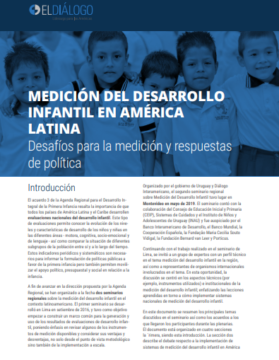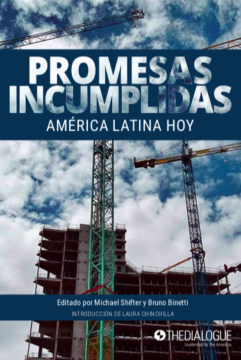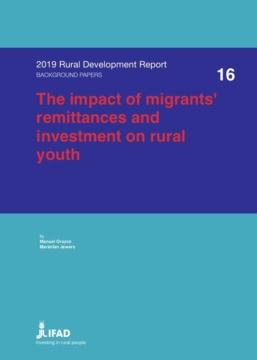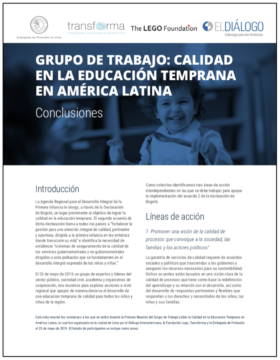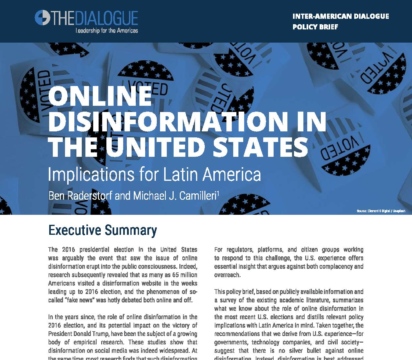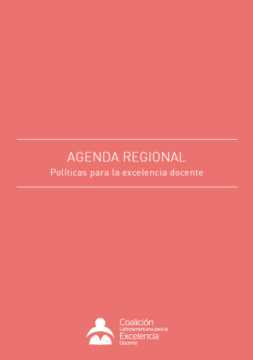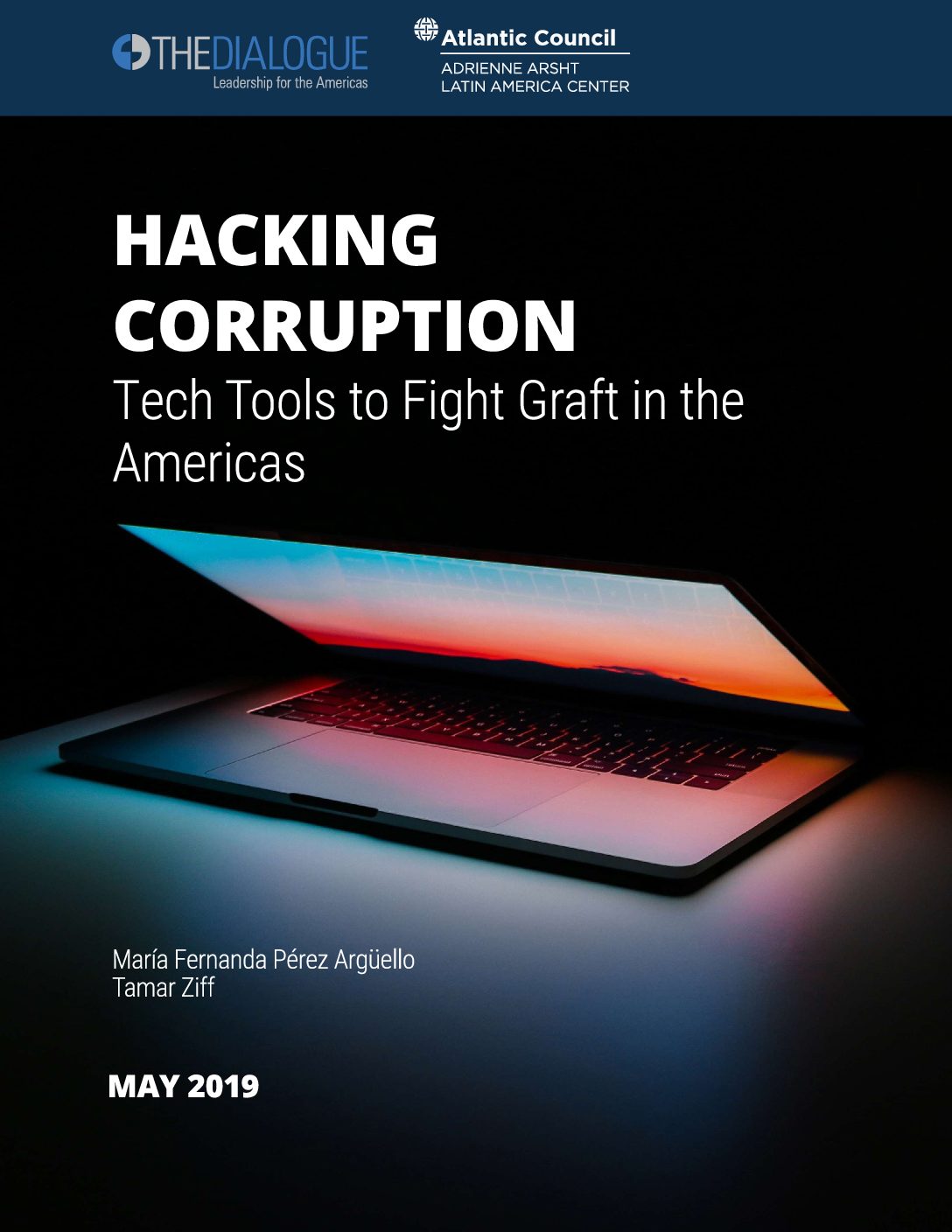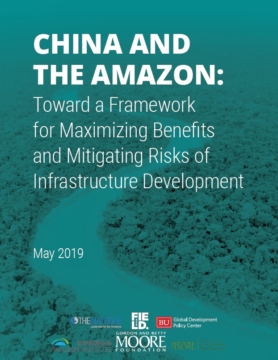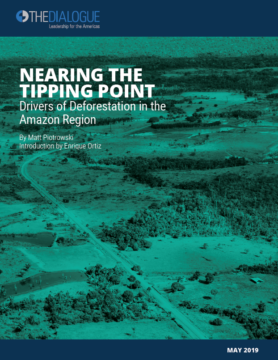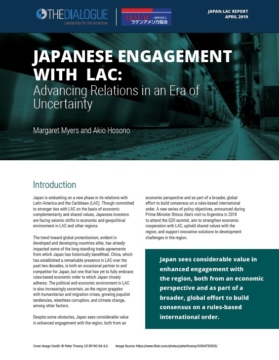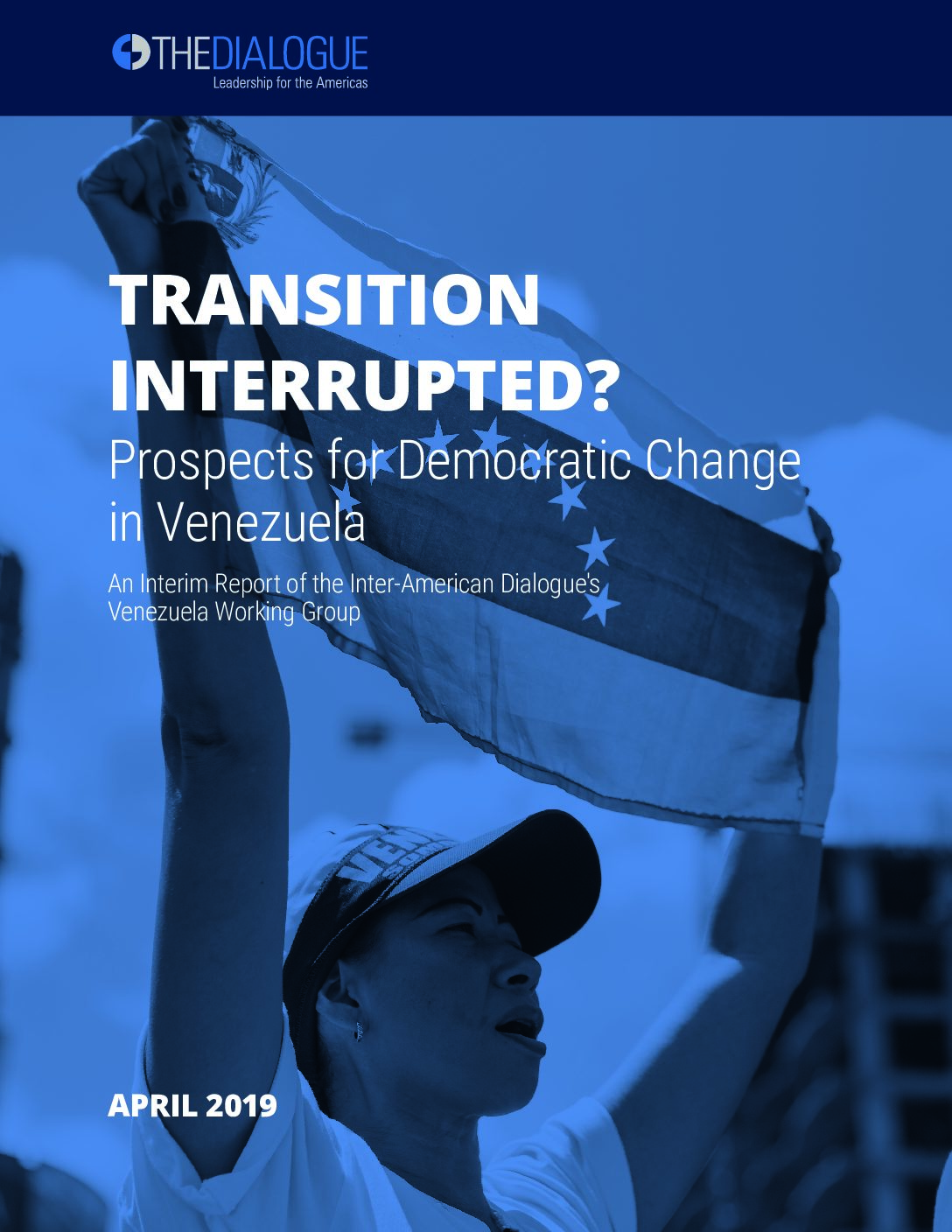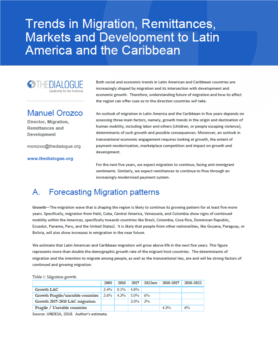
Trends in Migration, Remittances, Markets and Development to Latin America and the Caribbean
Understanding the future of migration and how it affects the region can offer cues as to the direction countries will take.
Understanding the future of migration and how it affects the region can offer cues as to the direction countries will take.
Informe de Primera Infancia de Progreso Argentina.
Contar con sistemas de medición del desarrollo infantil es fundamental para la formulación de planes y programas de acción y orientar la gestión pública en la región.
El libro busca hacer un balance de donde se encuentra América Latina en una serie de temas cruciales: desarrollo socioeconómico, seguridad y violencia, estado de derecho, crecimiento económico, integración regional y relaciones con el mundo.
Manuel Orozco, director of the Migration, Remittances, and Development Program, recently co-authored a report with Mariellen Jewers titled “The impact of migrants’ remittances and investment on rural youth.”
Informe de relatoría sobre la calidad en la educación temprana en América Latina.
O volume tem uma visão ampla dos recentes desenvolvimentos sociais, políticos e econômicos na América Latina. Ele contém seis ensaios, focados em temas salientes e transversais, que tentam construir um fio ou uma narrativa sobre a região altamente diversificada, destacando suas principais idiossincrasias e analisando para onde ela deve se encaminhar nos próximos anos.
A policy brief exploring the nature and implications of disinformation spread in the United States, particularly surrounding the 2016 elections.
The attached document is only available in Spanish. All people are born with enormous potential, but not everyone has the chance to fully develop their potential. Evidence shows that schools–where teachers are key actors–can make an important impact in the life of each student. The Latin American Coalition for Teaching…
A report analyzing the opportunities and challenges involved in utilizing new technologies to combat corruption in public procurement in Latin America.
The emergence of China as a new economic partner presents trade offs for Amazon basin countries. Without special care to avoid and minimize ecological and social impacts, the costs of development run the risk of outweighing its gains.
The largest tropical rainforest on the planet, the Amazon plays a critical role as a storehouse of carbon and mediator of the global water cycle and holds a greater share of the world’s known biodiversity than any other ecosystem. However, unchecked development is placing the Amazon under threat, pushing deforestation rates to near-record levels throughout the region.
Japan has launched a new phase in its relations with Latin America and the Caribbean.
A report analyzing the potential scenarios facing Venezuela at a critical juncture in its democratic development.
Each year, the Inter-American Dialogue analyzes remittances to the region, identifying areas of growth and new trends that are impacting how people send and receive money. Family remittances to Latin America and the Caribbean reached $85 billion in 2018, an important financial flow and a critical source of support for many households in the region.

